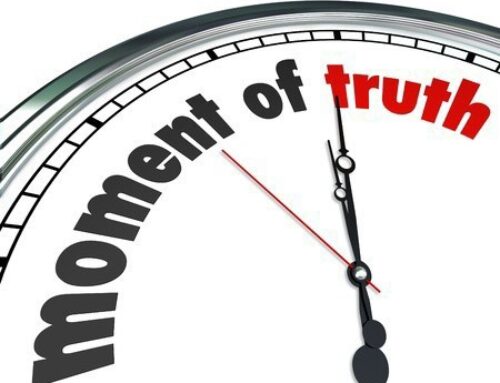 A 36-year-old North Dakota woman, Nadine Schweigert, recently married herself! According to news reports, there was a ceremony attended by her friends, and even an exchange of rings with her “inner husband.” The whole affair was not a gimmick, the bride/groom explained, but instead a celebration of herself.
A 36-year-old North Dakota woman, Nadine Schweigert, recently married herself! According to news reports, there was a ceremony attended by her friends, and even an exchange of rings with her “inner husband.” The whole affair was not a gimmick, the bride/groom explained, but instead a celebration of herself.
There will be plenty of scoffers. They’ll say it’s one more example of the denigration of marriage and the broader decline of our culture. But consider the more positive side. When she said her vows to herself, she reached the pinnacle of self-esteem. She became the very first (but perhaps not the last) of whom it can be said, she so loved herself that she gave herself in marriage to herself. The words have an almost biblical ring.

For half a century, Maslow’s formula has been our culture’s gospel. Innumerable books, religious and secular, have spread the word. Schools have constructed entire curriculums on self-esteem and explained academic success on its presence and academic failure on its absence. Criminologists have cited low self-esteem as the cause of crime (despite the awkward fact that criminals typically score higher than average on self-esteem tests).
Priests and ministers have made self-esteem a central theme of their sermons. As recently as a couple of weeks ago the celebrant in my parish reminded the faithful that they must love themselves before they can love others. (It wasn’t the first time I’ve heard that from a Catholic pulpit, and hope notwithstanding, the cynic in me says it won’t be the last.)
The greatest tribute to the gospel according to Maslow was surely that paid by the famous Robert Schuller, founder of the Crystal Cathedral, spiritual advisor to millions of Americans, and author of the best-seller, Self Esteem: the New Reformation, a book praised by Father Theodore Hesburgh, then-president of Notre Dame, as a “provocative piece on the power of self-esteem and its relationship to a theology of mission.”
Among the gems in Schuller’s book are:
A person is in hell when he has lost his self-esteem.
The ‘will to self-love’ is the deepest of all human desires.
The core of original sin . . . could be considered an innate inability to adequately value ourselves.
(How different the world would be if Adam and Eve had only had a better self-image!)
OK, so the original Bible message is rather different. David and Solomon urged humility rather than pride, and Jesus admonished his followers to deny rather than affirm themselves. Their perspective was that the more filled one is with self, the less room there is for God. Interestingly, historian Arnold Toynbee noted that Zarathustra, the Buddha, and Mohammed shared this perspective, calling for “self-conquest and self-surrender” rather than self-adulation. Of course, all these individuals lived too long ago to be enlightened by Maslow’s insights on self-esteem.
So congratulations to Nadine Schweigert, bride and groom. And kudos to the self-esteem movement for bringing the happy couple together. (Narcissus should have been so lucky. For those who came in late, he was the mythological character whose fascination with self caused him to fall into a pool and drown.)
However, there is one loose end to this tale. With the institution of marriage having grown so fragile today, the Schweigert marriage just might turn out to be unhappy. If that happens, there will be the usual recrimination and finger pointing, but what will be very different in that event is that there will be only one conceivable villain . . . Nadine.
The possibility that this latest heroine of Self-Esteem could be responsible for her own unhappiness would challenge the Movement’s very foundations. People might begin wondering if self-esteem is all it’s touted to be. Our culture’s commitment to the reigning dogma could be weakened. Who knows, maybe a lot of the ideals that self-esteem cavalierly swept aside—notably, self-discipline, self-sacrifice, and self-mastery—would experience a comeback. And wouldn’t that be awful.
Copyright © 2012 by Vincent Ryan Ruggiero

